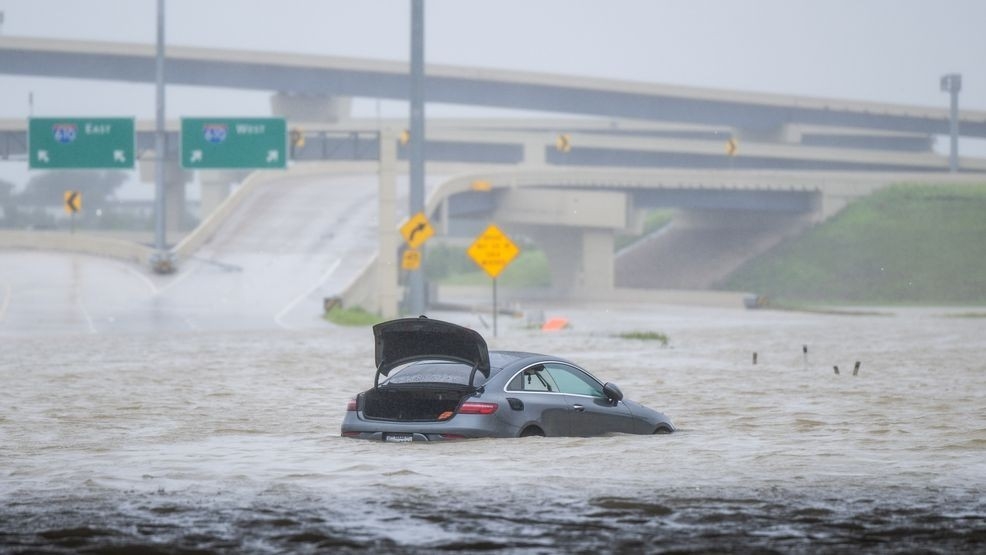Description
(TNND) — Rice University researchers are using artificial intelligence to superpower extreme weather simulations with an aim to better protect people and property from future storms.
Rice scholars launched the Advancing AI for Climate Risk and Urban Resilience research group last year, part of a call for interdisciplinary collaborations to study AI from the school’s Ken Kennedy Institute.
“I'm in civil and environmental engineering, so I'm interested in thinking about how we can apply some of these tools to help solve problems that we wrestle with,” said the group’s lead, James Doss-Gollin. “And so, I think there's a lot of excitement there.”
Hazard modeling to prepare for extreme weather is not a new endeavor.
The Federal Emergency Management Agency uses hazard models to try to map areas that are at higher risk of flooding, Doss-Gollin said.
Insurance companies use hazard modeling to understand risks and set prices.
Communities use hazard modeling to set design standards for everything from houses to their power grids.
Doss-Gollin and his team are integrating AI into that hazard modeling.
They’ve been working on flood modeling using machine learning.
“And what we've seen with that so far is that we trade a little bit of accuracy, so it's not quite as good as the physics-based models, but it's orders of magnitude faster,” Doss-Gollin said.
They’ve been using AI to develop new hurricane wind models.
And they’ve been using AI to study hydrology, which can help communities deal with drought.
“I think transportation is a really good example, because then if you have forecasts of a storm, and you want to try to come up with evacuation plans, you want to be able to model what the traffic might look like under different scenarios for evacuation,” he said.
Hazard modeling is about running simulations, and AI makes that process much faster.
And the models should become more accurate as the fast-evolving AI systems grow more powerful.
“We're trying to figure out how to bridge the physics that we know and the simulations that we already have with these tools,” Doss-Gollin said. “And in general, so far, the bulk of them let us get most of the accuracy for a lot more speed."
Extreme weather can introduce any number of variables that make planning difficult.
Doss-Gollin said a lot of design standards or insurance maps are built on expectations of a single hypothetical flood.
In hilly places, it’s likely that flood waters will be directed to the same place, time after time.
But in flat places with impervious soils, every flood will be a little bit different, Doss-Gollin said.
“What we would like to do is run hundreds or thousands, or tens of thousands, of realistic but not yet observed storms and see for each one what kinds of flooding happens, and how does that flooding change if you do different things, like build different infrastructure,” he said. “So, if you have a hundred infrastructure options that you're looking at in a thousand storms, that's 100,000 simulations. So, if we wanted to run all of those, it could be prohibitive.”
That’s where AI-powered simulations can help, even as a screening tool, he said.
News Source : https://wfxl.com/news/nation-world/researchers-using-ai-to-power-faster-extreme-weather-simulations
Other Related News
08/20/2025
WALB is working to produce a video for this story In the meantime we encourage you to watc...
08/20/2025
DECATUR COUNTY Ga WALB - A man was arrested in Decatur County after attempting to set the ...
08/20/2025
WALB is working to produce a video for this story In the meantime we encourage you to watc...
08/20/2025
GRADY COUNTY Ga WCTV - The Grady County Sheriffs Office announced Wednesday morning that d...
08/20/2025









